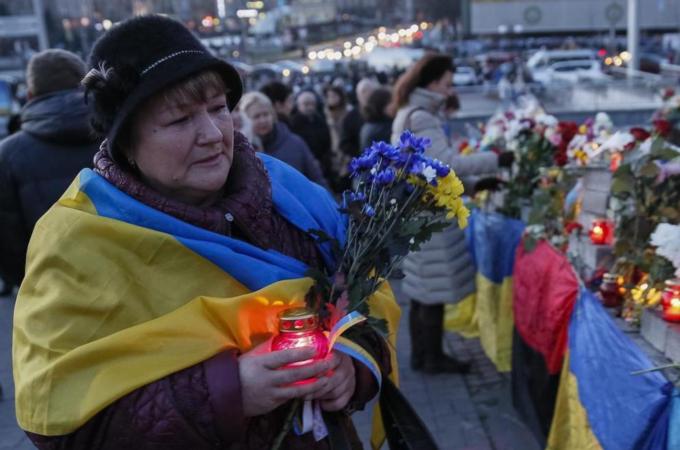Putin dismisses talk of Iron Curtain's return
Russian president says isolation of nation over Ukraine crisis "impossible", despite US threat of more sanctions. |
 |
| Russian President Vladimir Putin has said Moscow will not be isolated on the international scene and has dismissed the risk of "catastrophic consequences" for the Russian economy of Western sanctions over the crisis in Ukraine. Putin told the state-run TASS news agency that Russia was aware of the fatality of a new 'Iron Curtain', referring to the ideological and physical boundary that divided Europe from the end of World War II until the end of the Cold War. Earlier the West warned Moscow of "catastrophic consequences" over Ukraine. "We will not go down this [Iron Curtain] path in any case and no one will build a wall around us. That is impossible!" said Putin. His comments came a day after Russian foreign minister accused the West of seeking "regime change" in Moscow. Sergei Lavrov spoke out against Western sanctions on Russia after US Vice President Joe Biden hinted on Friday at possible further measures over Moscow's "unacceptable" role in the former Soviet republic. "The West is showing unambiguously that they do not want to force (Russia) to change policy. They want to achieve a change of regime," Lavrov said. "Now public figures in Western countries are saying that it's necessary to introduce sanctions that would destroy the economy and rouse public protests." Western sanctions The United States and European Union have imposed several rounds of sanctions on Moscow over Ukraine, targeting the key energy, defence and finance sectors. As a result, the rouble has lost just under a third of its value against the euro since the start of the year. In Kiev on Friday, Biden accused Russia of failing to honour a peace agreement signed in September, which included a now tattered ceasefire for eastern Ukraine. "So long as that continues, Russia will face rising costs, greater isolation," he added. About 4,300 people have been killed in the conflict in seven months, according to the United Nations, including 298 who died when Malaysia Airlines flight MH17 was shot down in July. Nearly 1,000 people have died since the ceasefire came into effect. |

0 comments: